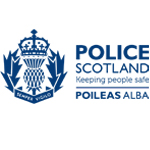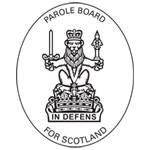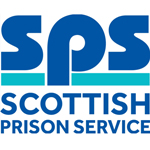How Police Scotland delivers the Victims’ Code for Scotland for people affected by crime
For Victims Awareness Week 2020, PC Ryan Gallagher from the Safer Communities Team at Police Scotland answered a few of our questions on what officers are doing to make sure victims know their rights and are enacting the Victims’ Code for Scotland.
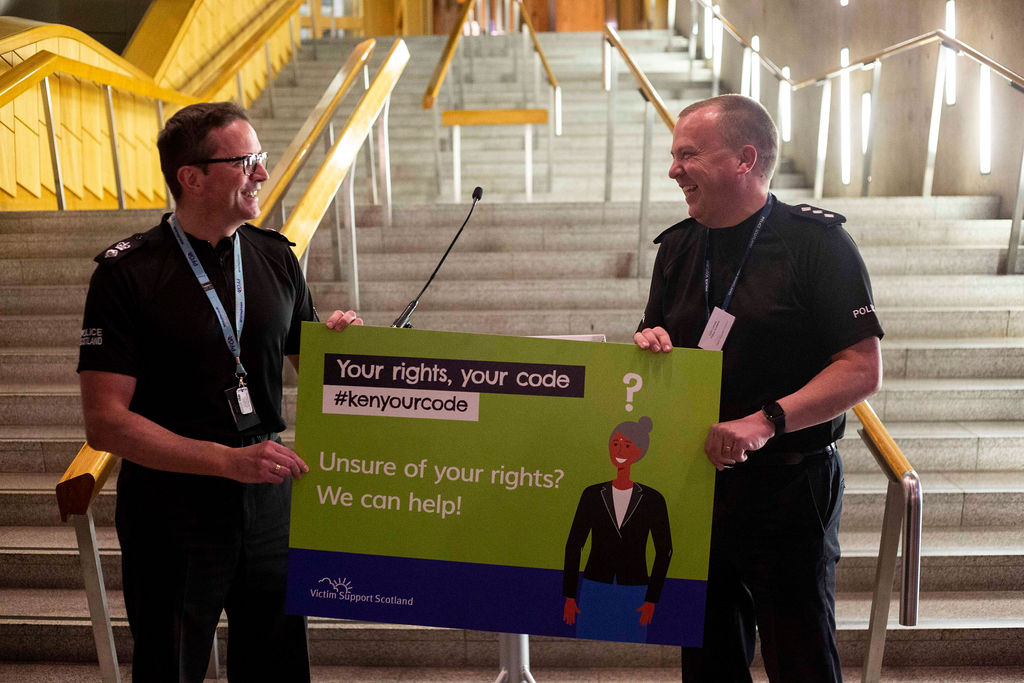
Q: How does your service uphold victims and witnesses’ right to minimum standards of service? What treatment can victims and witnesses expect?
Police Scotland aim to provide a high standard of care for victims during their contact with Police. All victims should expect to be dealt with in a professional manner by officers and be confident they will be treated with dignity and respect regardless of their background.
Every year Police Scotland produces an annual report on our performance towards these Standards of Service for victims and witnesses to show what we are doing to improve our service for victims.
Q: How does Police Scotland keep victims and witnesses up to date with their case and what is happening? What information can they expect to receive from the police?
When carrying out an enquiry, officers will routinely give information to victims, including whether they are investigating the crime, the outcome of the enquiry or explain the reasons for these outcomes and what the next steps may be.
Victims should also be issued with a Victim Care Card – this is the case whether their initial crime report is taken over the phone or in person to a police officer. As well as detailing their rights, this card includes the crime number or incident number to help victims get information about their enquiry when phoning 101.
Q: How do Police Scotland ensure people affected by crime understand the process they are a part of and the procedures police are carrying out?
Police officers and staff have been specially trained and a wealth of experience of speaking to people from many different backgrounds and are used to communicating clearly using easy to understand language.
Q: How do you allow/encourage a victim or witness to share their story and give them a safe space to talk?
When interviewing victims and witnesses, officers will listen to their story and go over their statement with them to ensure the contents are accurate. Victims can request to have anyone of their choice, including a lawyer, to stay with them while this interview is carried out. Sometimes this may not always be practical or suitable but officers have to explain the reasons to the victim if this can’t be facilitated.
Q: How do you ensure they understand everything, can you offer interpreters or translated information?
Police officers and staff have access to an interpreter service and this can be used to help them communicate with anyone who doesn’t understand English fully or don’t speak English as their first language.
We can also provide the Victim Care Cards which explain victims’ rights in a number of languages.
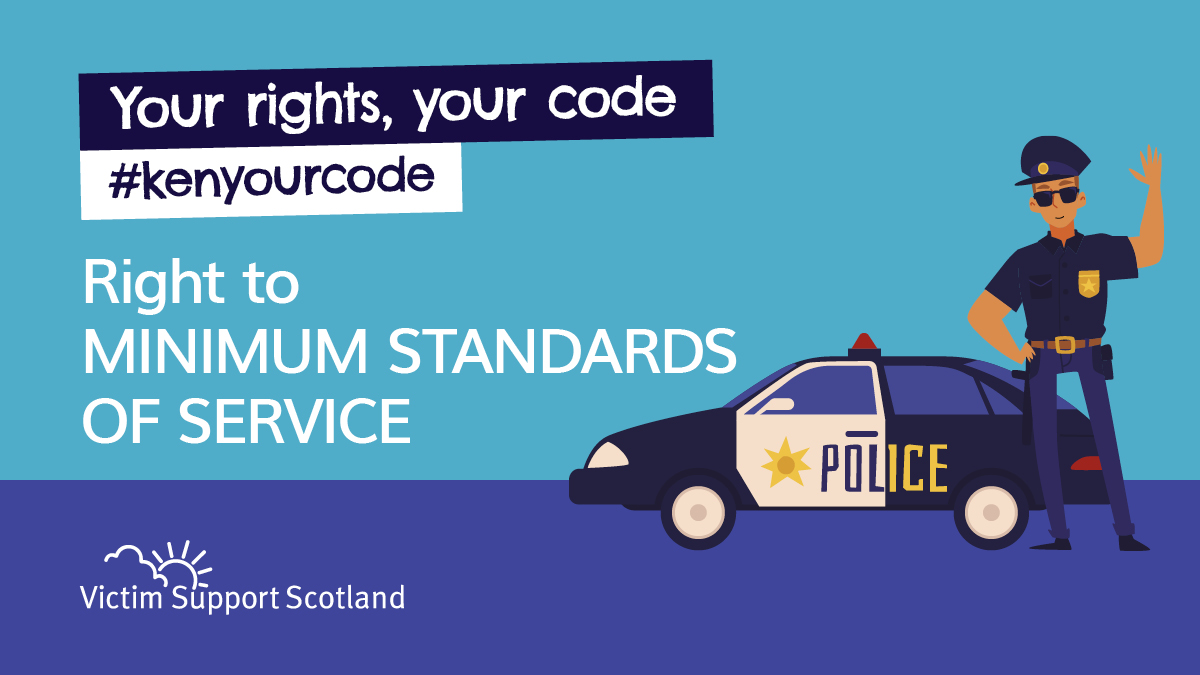
Q: How does Police Scotland protect the physical, mental and emotional wellbeing of people affected by crime? What can be put in place to keep an offender away from a victim, and how can your service assist with this?
As police officers our main purpose is to keep the people we serve safe. We strive to do this by providing a high quality of operational policing response and by working closely with our partners.
To protect victims from offenders we have a range of options available including requesting specific bail conditions that would prohibit offenders from approaching or contacting victims where appropriate.
For victims of certain crimes e.g. domestic abuse, we will assess the risks to victims take necessary steps to ensure the safety of victims where they live.
Q: How do you limit the times people share their story to reduce re-traumatisation? Do you have any special measures in place for vulnerable victims or witnesses?
We strive to take victims statements as soon as possible and keep the number of interviews to a minimum. Victims have the right to have a lawyer or someone with them when giving their interview. Victims of certain crimes also have the right to request the gender of the officer carrying out their interview.
Vulnerable people can be assisted in their interviews in a number of ways, such as where the interview takes place, video recording, using specially trained officers, ensuring relevant interviews take place with the same officer or using the service of an appropriate adult etc.
Police would ensure any concerns for victims and witnesses’ vulnerability are shared with the Procurator Fiscal so they can provide assistance in court proceedings.
Q: What victim and witness support can you provide? Do you refer to or inform victims about external support agencies like Victim Support Scotland?
All victims of crime, regardless of crime type, should be given their right to request a referral to victim support services by Police. This will be done either over the phone or by the officer taking their statement. These rights are included on the victim care card which also contains details of how victims can self-refer to Victim Support Scotland.
When a request for a referral is made to Police the persons details are usually provided to Victim Support Scotland who are the main service used Police Scotland, however other services such as Rape Crisis Scotland are also used where appropriate.
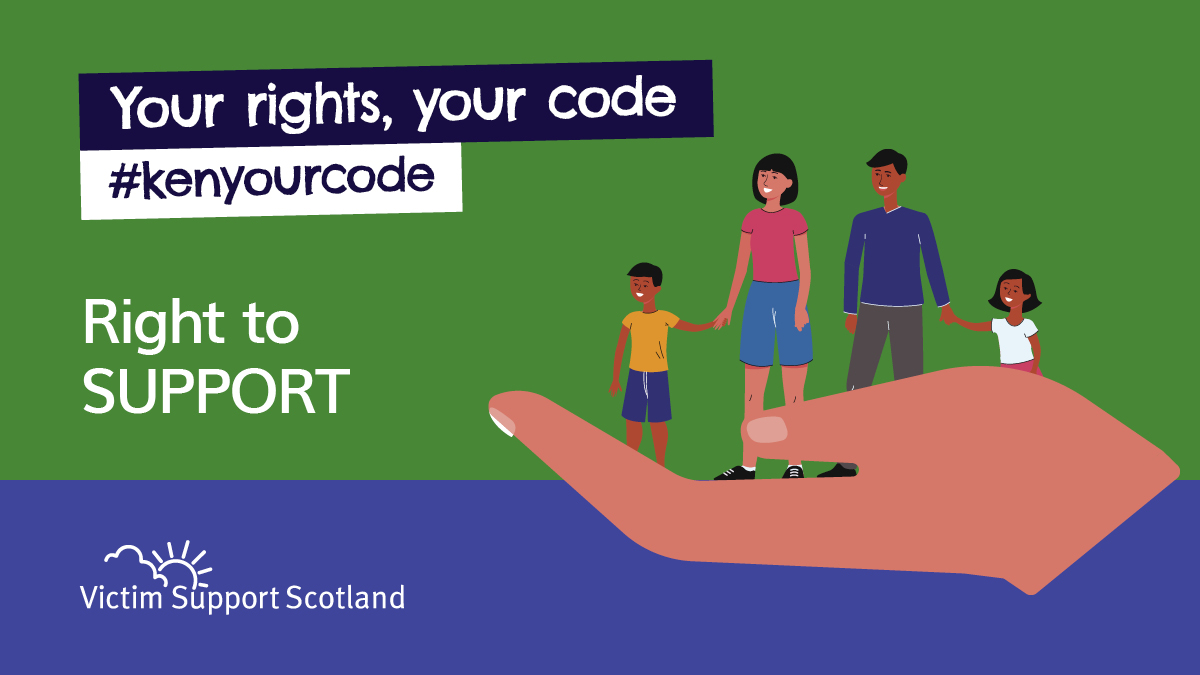
Q: If people affected by crime think their rights have been breached or they haven’t received the service they are entitled to; how do they complain?
An online complaint form and full details on the complaint processes are available on the Police Scotland website or can be found out at your local police station.
This blog was provided by PC Ryan Gallagher from the Safer Communities Team at Police Scotland to Victim Support Scotland for Victims Awareness Week 2020.
Victims Awareness Week 2020
Find out more about your rightsLatest news and blogs
-
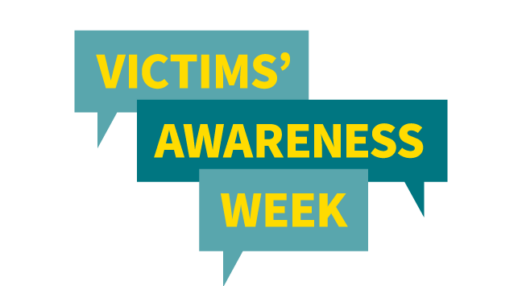
Victims’ Awareness Week 2025
Victims' Awareness Week 2025 will take place from 21-28 February.
Read more
-

We’re here – support over the festive period
We know that the festive period can be difficult for people impacted by crime - that's why we'll remain open right through Christmas and New Year.
Read more
-
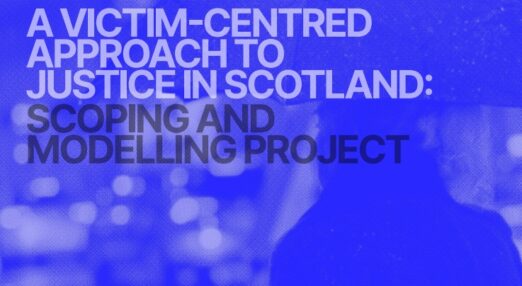
A Victim-Centred Approach to Justice in Scotland: Scoping and Modelling Project
This project, commissioned by Victim Support Scotland, sought to explore how a more victim-centred approach could be realised in Scotland's criminal justice system.
Read more
-

Concern over impact of new early prisoner release bill as Scotland’s crime stats revealed
Victim Support Scotland has expressed concerns about the impact of the Prisoners (Early Release) (Scotland) Bill, which was passed by MSPs yesterday, in light of new crime statistics revealed by the Scottish Government.
Read more
-

Victim Support Scotland voices concerns about Prisoners (Early Release) (Scotland) Bill
Victim Support Scotland has voiced concerns about the Prisoners (Early Release) (Scotland) Bill.
Read more
-

Media Reporting on Child Homicide – Victim Support Scotland Consultation Response
Victim Support Scotland's response to the Scottish Government consultation on Media Reporting on Child Homicide.
Read more
-
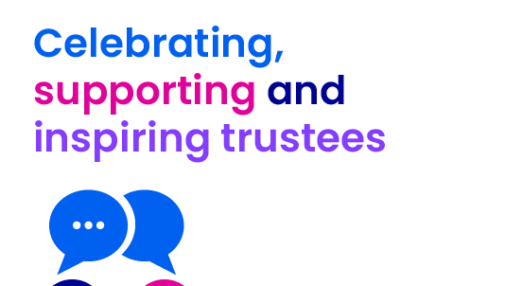
Highlighting the role of Trustees at VSS
We sat down with Gillian Imery, one of our trustees, to chat about the role she plays, why she decided to get involved with VSS, and how her skills and experience enrich our charity.
Read more
-

Statement on Homicide in Scotland figures
Victim Support Scotland has released a statement in response to the Homicide in Scotland figures released by the Scottish Government.
Read more
-
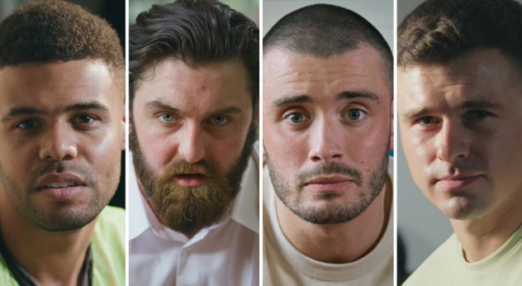
Statement on Police Scotland rape statistics
Victim Support Scotland has released a statement on the figures released by Police Scotland which show an increase in the number of rape cases reported within the last 6 months, alongside the launch of the latest 'That Guy' campaign.
Read more
-

Victims of hate crime need to have their voices heard
This article by our Chief Executive Kate Wallace argues why more must be done to support victims of hate crime.
Read more
-

Statement on Scottish Government’s plans for Victim Notification Scheme reform.
Victim Support Scotland has released a statement on the Scottish Government's plans for reform of the Victim Notification Scheme.
Read more
-

Statement on Scottish Government plans for long-term prisoner release
Victim Support Scotland has released a statement on the Scottish Government's plans for long-term prisoner release.
Read more



